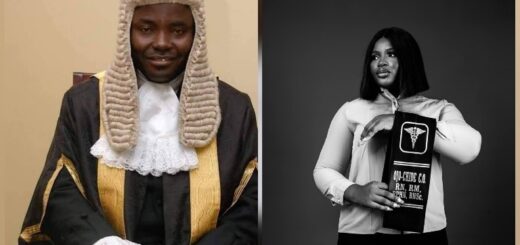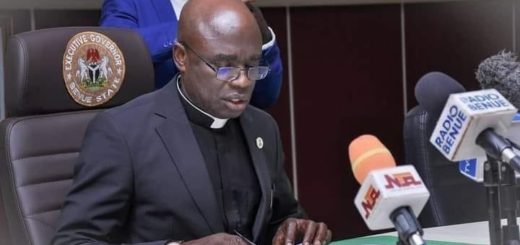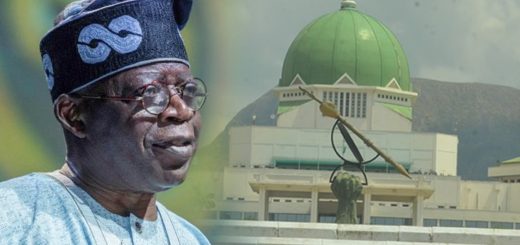Electricity consumers demand new tariff reversal
The recent increase in electricity tariff by power distribution companies, as approved by the Nigerian Electricity Regulatory Commission, shows that the Federal Government and Discos are taking Nigerians for granted, power sector experts and consumer groups have said.
Speaking on the issue on Sunday, they demanded the Federal Government to order the power distribution companies to reverse the tariff hike, stressing that it came amidst the severe economic crisis in Nigeria currently.
They also stated that power distributors increased the electricity tariff payable by consumers without following due process as contained in the Multi Year Tariff Order.
Since the hike tariff was confirmed by a Disco last week, several condemnations had trailed the development, despite the silence of the industry regulator concerning the issue.
The PUNCH reported on Wednesday that electricity distribution companies had quietly increased the tariff payable by power consumers across the country.
The report stated that though most of the Discos did not make this public, electricity users kicked against the move, describing it as “a perfect robbery” amidst the harsh economic realities in Nigeria currently.
The Abuja Electricity Distribution Company, which confirmed the tariff hike while responding to a Twitter user on Wednesday, explained that it was based on the order of the Nigerian Electricity Regulatory Commission.
“Good day, please be informed that the increase in tariff is in compliance with NERC order,” the Disco stated.
Reacting to the development on Sunday, the Chairman, Nigeria Electricity Consumer Advocacy Network, Tomi Akingbogun, said the tariff hike should be reversed considering the economic hardship across the country.
He said, “It is right for us to call for a reversal and we are demanding that it be reversed. However, this is not the first time they’ve done it. It has been a regular thing for several years and in those instances we’ve called for reversals.
“But the next thing you will hear is that they have modified the law or have changed the Multi Year Tariff Order to accomodate what they are doing. When we keep shouting they just ignore us, but I think the government needs to really take the public seriously.
“And the public too will have to stand up for their rights, because it will get to a point when they will push everybody to the extent that we will all rise on the streets. We’ve been trying to make sure that the masses are not squeezed to a point of no return.”
Akingbogun said NECAN held a lot of meetings with the power sector operators on why it was not in the interest of the masses to raise tariffs, but the position of consumers were ignored.
“It is really frustrating. How can someone on N30,000 minimum wage survive this increase in tariff in the kind of economy that is prevalent in Nigeria now? The increase has to be reversed for the benefit of the masses,” he stated.
On his part, a legal consultant and energy law advisor, Prof. Yemi Oke, explained that power tariff increases were meant to follow some laid down procedures, but stressed that this was neglected in the implementation of the recent hike.
He said, “Every increase in electricity tariff must follow a Multi-year Tariff Order. The year 2020 was the last order which speculated a bi-annual review to determine tariff increase.
“The MYTO- must be reviewed and specifically authorise tariff increase after following laid-down rules including wide consultations. All these have not been done.
“Even in my inaugural lecture, I captured this same anomaly in the previous tariff increases. This new one shows they’re determined to continue to take Nigerians for granted.”
Also, the President, Nigeria Consumer Protection Network, Kunle Olubiyo, said the Federal Government had eventually withdrawn subsidy on electricity tariffs.
He said the NERC had given the power distributors an open cheque to effect minor tariff reviews under the reflective tariff and service-based tariff schemes.
“It is on authority that I tell you that the Federal Government has finally withdrawn all manner of subsidies on electricity tariff for Band A category of consumers,” he stated.
He added, “The Federal Government in the selection of Band A category of electricity consumers felt that those of us on Band A should be able to afford any amount placed on tariff for electricity. This is confirmed and instructive. There is no gain for any institution to deny this reality.
“Under the reflective tariff and service-based tariff, as a condition precedent to increase in electricity tariff, the NERC has seemingly given the 11 electricity distribution companies an open cheque to carry out periodically, minor tariff adjustments.
“This is not minding the place of regular engagement and consultation, which in the past had turned out to be a smoke screen and just to fulfil all righteousness.”
Olubiyo stated that power consumers on Band A would have to pay more for electricity, as the increase in Band A tariff took effect from January 2023.
He said, “The major challenge before the regulatory institutions, as represented by NERC, is that the commission, more than ever before, needs to arise and wake up to its responsibility of effective monitoring of distribution licensees/electricity market, and further demonstrate the ability to be an incorruptible judge and impartial and fearless arbiter.”
Meanwhile, the 11 electricity distribution companies earned about N597bn on electricity sales within the space of 12 months, according to data obtained from the Nigerian Electricity Regulatory Commission.
The NERC data showed that revenue from energy sales by Disco was made between January and December, 2022.
A breakdown of the report, ‘Discos’ Energy Sales by Service Band Data for Nov 2020 to Sept 2022’, showed that N597bn was collected out of a total of N840bn billed by the utility firms.
A total of 16 billion kWh of electricity was billed by the 11 Discos during the year under review.
Although Abuja Disco billed N109bn worth of electricity, however, it was able to collect about N91bn.
While Benin Disco billed N89bn, the utility firm was able to collect N51bn.
Eko Disco billed its customers N97bn, however, the firm was able to attain N89bn collection.
Furthermore, Enugu Discos churned out a bill of N75bn, but was able to rake in N52bn in the year.
On its part, Ibadan Discos, one of the utility firms liquidated during the year under review, billed out N101bn, but was able to collect about N67bn.
Ikeja Disco billed out the highest with N130bn, and recorded the highest collection of N120bn.
Jos Electricity Distribution Company sent out bills worth N45bn, but was able to recover about N20bn.
Kaduna Discos billed 58bn, collected N21bn; Kano billed N53bn and raked in N34bn; Port Harcourt Disco, N64bn but recovered N41bn; while Yola Discos, still being run by the government, sent out a bill of N18bn, but was able to rake in N10bn, making it the least earner among the utility firms.
On his part, National President Electricity Consumers Association of Nigeria, Chijioke James, insisted that the interest of consumers must be considered as the government makes the second move in the privatisation process.













